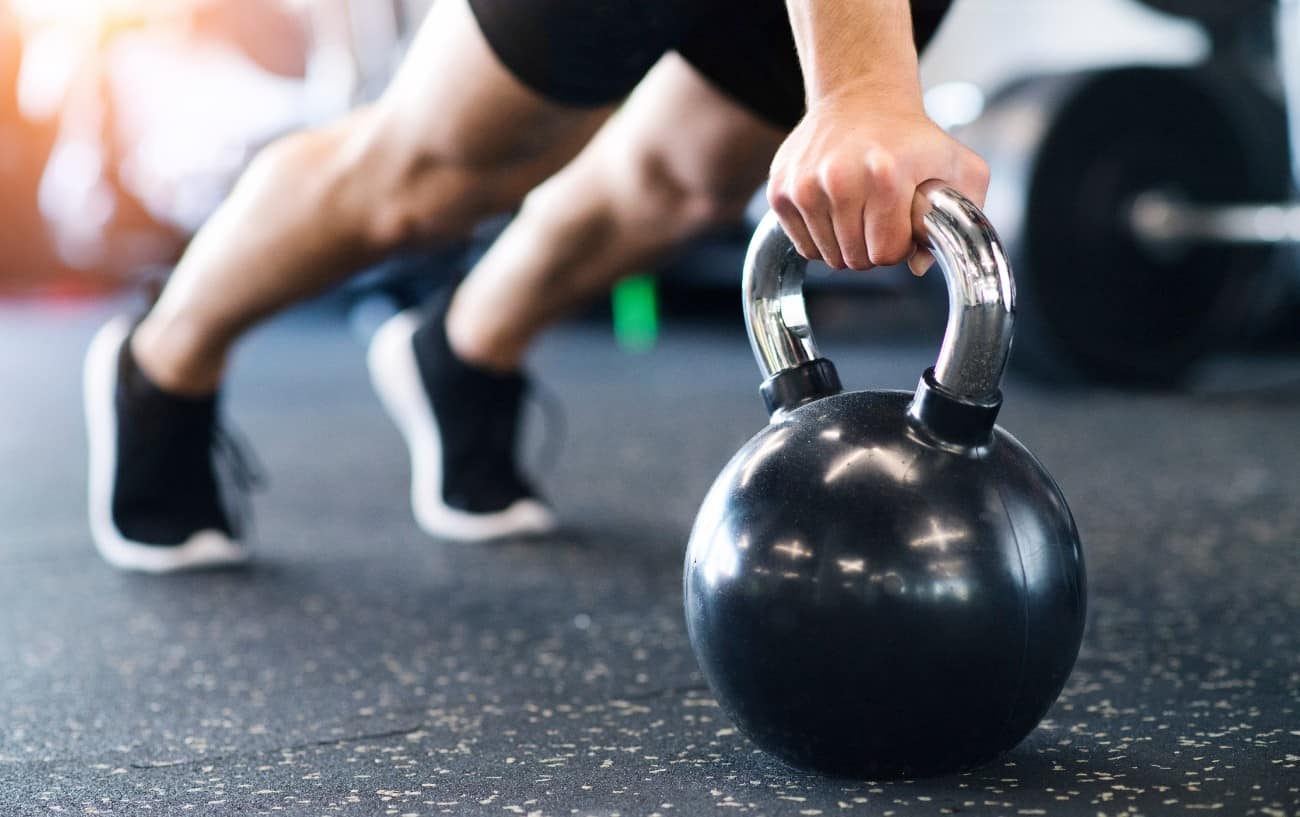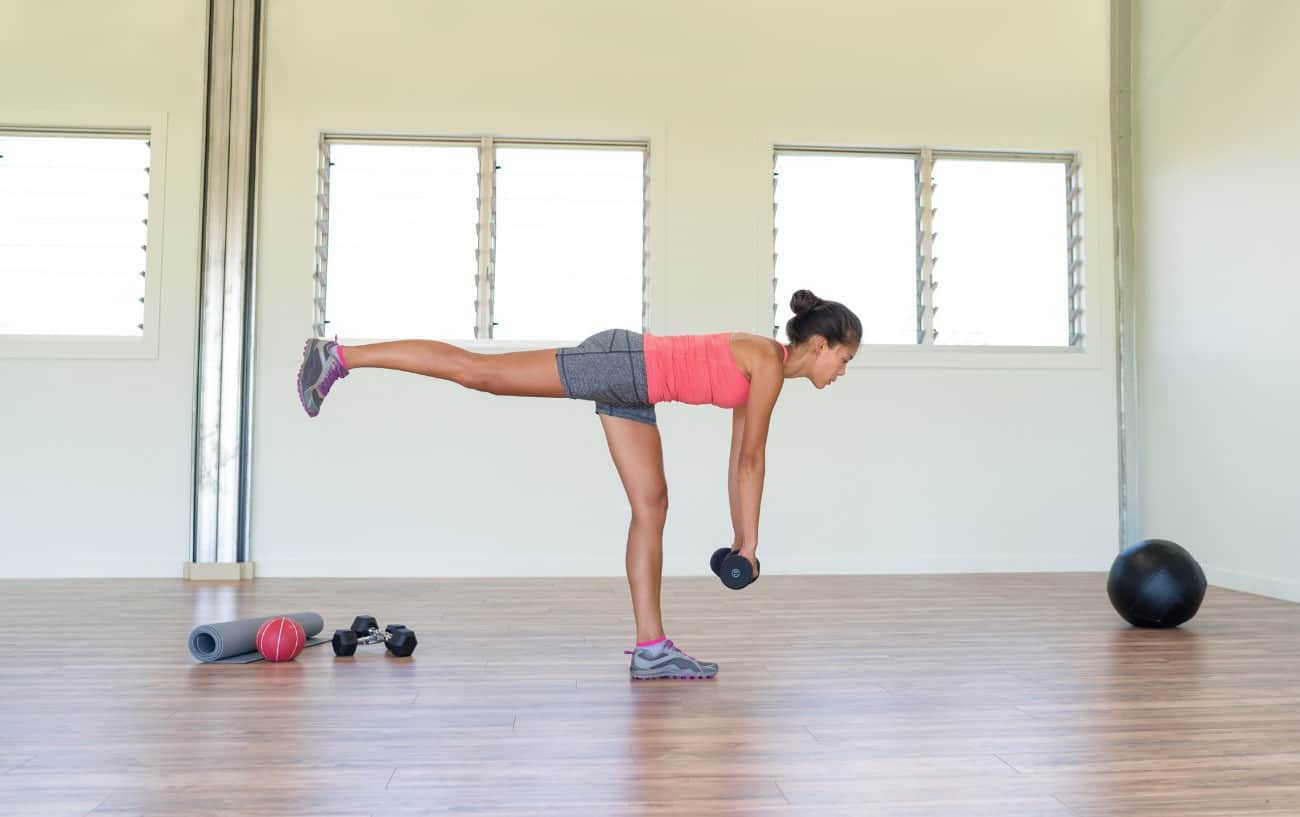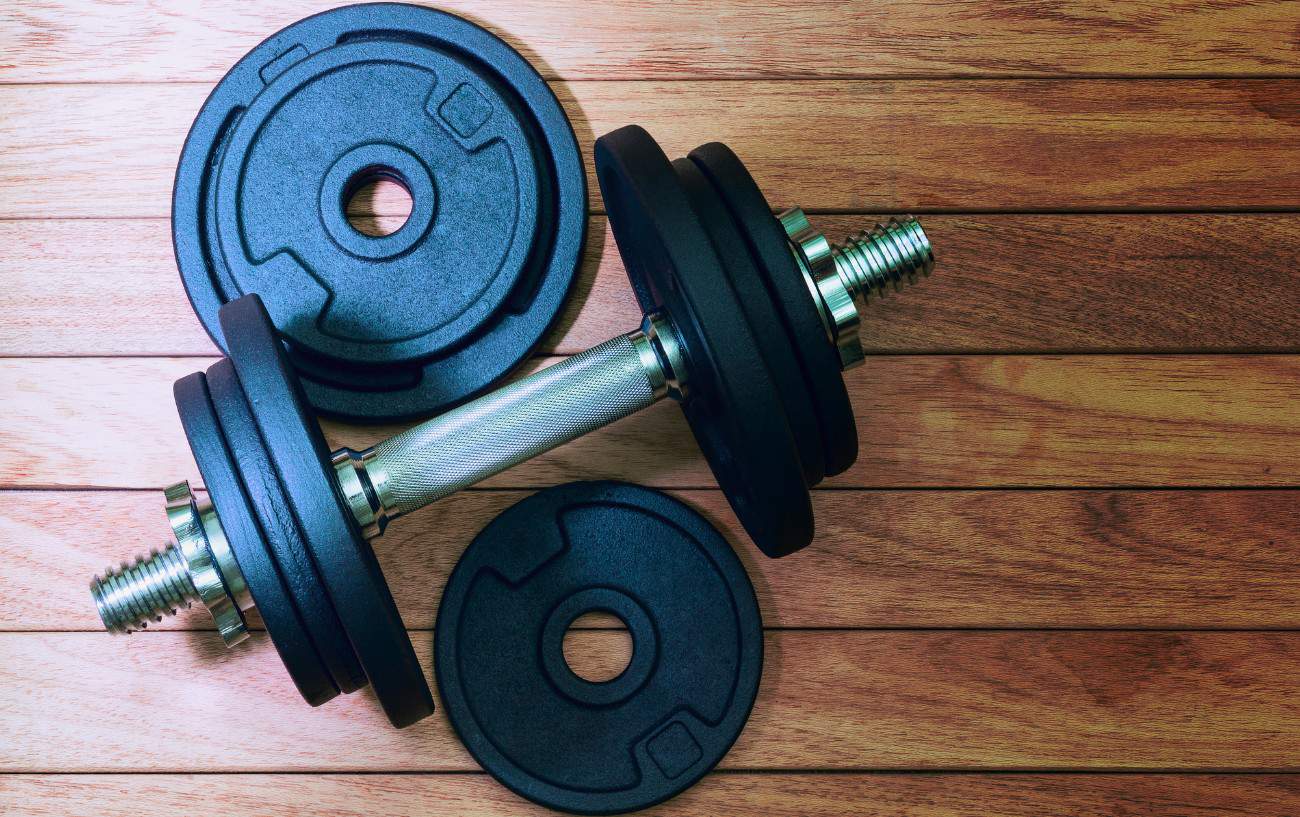Should You Continue Strengthening Exercises Week Before Marathon
Most runners love to run. It's what drives us to get up and out of bed in the morning, what we talk about with our buddies, and what makes us feel alive.
We heartily train through downpours, heavy winter snows, sweltering summer afternoons, and windy gales. We tack on extra miles on days the run feels as natural as a gazelle loping along the endless savannah. And, we analyze our splits and run data as soon as we are home from the workout.
However, as much as runners love running and want to be able to run faster, longer, and forever injury-free, the motivation and interest to head to the gym or pull out the dumbbells at home to strength train is often woefully low despite the fact that strength training for runners can indeed be the most critical adjunct to mileage.
Whether you're a beginner runner looking to get in on the ground floor with your strength training program or a seasoned runner ready to get stronger and make your body more resilient, keep reading for our complete guide to strength training for runners.
In this guide, we're going to look at:
- What Is Strength Training for Runners?
- 8 Benefits of Strength Training for Runners
- Basic Equipment for Strength Training Workouts
- Best Strength Training Exercise for Runners
- How Often Should Runners Strength Train?
- When Should Runners Do Strength Training Workouts?
- 7 Tips for Strength Training for Runners
Ready?
Let's dive in!

What Is Strength Training for Runners?
Strength training for runners, which can also be referred to as weight training, resistance training, or even weight lifting, involves performing specific exercises with some form of resistance to increase muscular strength, power, size, or endurance.
The form of resistance used in a strength training workout can include dumbbells, barbells, kettlebells, bands, sandbags, weight machines, or even just your body weight, as long as it puts your working muscles under some sort of load.
8 Benefits Of Strength Training for Runners
Although you certainly need to run to become a better runner, supplementing your road, track, trail, and treadmill miles with strength training confers numerous benefits to both your running performance directly and your body and health in general.
Benefits of strength training for runners include the following:
#1: Strength Training for Runners Helps Prevent Overuse Injuries
When you run, your feet land roughly 1,400 to 1,600 times per mile, absorbing a force equal to 2–2.5 times your body weight with each and every step. Even just multiplying that out for a single run will quickly illustrate the tremendous amount of pounding your body withstands during a given week of running.
One of the key benefits of strength training for runners is that it can help prevent overuse injuries by fortifying your body to better tolerate the impact and musculoskeletal demands of running.
Strength training develops the ability of your muscles and connective tissues to handle higher loads, which offsets undue stress on your cartilage, joints, and bones.
Runners can also engage in unilateral exercises in their strength training workouts to correct muscle imbalances, which often lead to injuries.

#2: Strength Training Improves Running Economy and Efficiency
Strength training workouts help build stronger neuromuscular connections, so your brain gets better at recruiting the muscle fibers you already have to signal them to contract. This results in stronger, more powerful movements, which can translate to better running economy.
As your running economy increases, you can run faster and further before fatiguing.
#3: Strength Training Can Improve Your Running Form
Strength training can improve your running form, biomechanics, and stride by increasing stability in your core and supporting muscles. As you build strength in your core, for example, you can maintain a more upright posture even in the final miles of a race.
A hunched running posture or tight shoulders at the end of a long run or race can compromise your ability to take a full breath and can even potentially lead to side stitches and injuries.
Stronger glutes and hips will relieve work on the hamstrings, and make you a more powerful uphill runner.

#4: Strength Training Can Increase Overall Running Performance
Studies show that strength training workouts for runners can improve aerobic capacity (VO2 max) and submaximal endurance performance due to the neuromuscular adaptations that result.
#5: Strength Training Increases Bone Density
Having strong bones is vital for healthy longevity in the sport of running. Low bone density is particularly common for post-menopausal women, though it can affect runners of all ages, especially if energy intake is inadequate.
Research shows that strength training increases bone density because bones adapt to the stresses strength workouts place on them by building back stronger. Strength training places the bones under loads, which signals them to lay down more bone matrix and minerals such that the bones get stronger.
Additionally, as your muscles get stronger, they are able to pull more forcefully on the bones when they contract. This stress also signals your body to deposit more minerals and strengthen the structure of your bones.
#6: Strength Training Can Improve Your Overall Health
Strength training, like all forms of exercise, is great for your general health. Research has found strength training can reduce blood pressure, improve blood sugar control, and reduce triglycerides and cholesterol.

#7: Strength Training Increases Your Metabolic Rate
A strength training workout for runners is considered anabolic, which, in a simplified sense, means it builds your body up, whereas a running workout is considered catabolic, which means it breaks your body down.
Strength training increases your lean body mass, the primary determinant of your metabolic rate, or the number of calories you burn in a day. By putting on more muscle mass, your body cranks through more calories, which helps you burn body fat and optimize your body composition for running.
#8: Strength Training Can Boost Your Mental Game
Many runners find that strength training is empowering and boosts confidence, focus, and self-esteem. This can help you toe the line of a race with more self-efficacy and resilience.
Basic Equipment for Strength Training Workouts
You don't have to have access to a full circuit of weight machines at a gym to get in a good strength workout. In fact, free weights such as dumbbells and resistance bands usually provide more functional benefits to runners.
While you can certainly strength train in a gym using fancy resistance machines, kettlebells, TRX suspension straps, and medicine balls, it's also perfectly viable to work out in your living room with just a few dumbbells, resistance bands, and your own body weight.
If you do want to strength train at home, consider getting adjustable dumbbells as they take up less space and allow you to still have a range of weights to use for different exercises as you get stronger.

Best Strength Training Exercise for Runners
Strength training for runners should be geared towards balancing the demands of running. Running is a unilateral exercise, which means that your two legs are moving independently of one another and supporting your body one at a time.
Therefore, strength training for runners should focus on unilateral exercises (like lunges and step-ups), as well as those that develop core strength.
However, compound, total-body exercises like squats and deadlifts are also beneficial for strengthening the muscles involved in running.
Although far from an exhaustive list, the following are some of our best strength training exercises for runners:
- Squats
- Deadlifts
- Single-Leg Romanian Deadlifts
- Forward and Reverse Lunges
- Lateral Lunges
- Bulgarian Split Squats
- Steps Ups
- Hamstring Curls
- Glute Bridges
- Calf Raises
- Clam Shells/Banded Side Steps
- Push-ups
- Planks
- Rows
- Reverse Fly
- Pull-ups
- Dead Bugs
- Bird Dog
- V-Ups
- Pallof Press

How Often Should Runners Strength Train?
In an ideal world, runners should typically aim to do 2-3 total-body strength training workouts per week . However, some runners prefer shorter and more frequent strength training workouts (3-5) per week, and some runners can only manage one strength workout per week.
The key is that some strength training will always trump no strength training, so even if you can't manage 2-3 strength training workouts per week, do what you can.
Moreover, a well-rounded strength training workout for runners doesn't have to take much more than 20-30 minutes.
When Should Runners Do Strength Training Workouts?
Most coaches recommend scheduling your strength training workouts on your easy run days rather than when you have a long run or hard workout scheduled. Stacking strength training with another hard workout can be too much for your body.
A strength workout for runners can impact how your legs will feel on a run, both immediately afterward as well as in a day or two following a heavy lift. For this reason, it's usually better to do your run first—either right before your strength training workout or in the morning on a day you'll hit the weights in the afternoon or evening.
Following this order ensures you're not trying to drag your fatigued legs through a run.

7 Tips for Strength Training for Runners
Strength training for runners can feel daunting if you're new to it, but here are some helpful tips to ensure your workouts go as smoothly as possible:
#1: Work With a Trainer
Most gyms offer a complimentary session with a personal trainer who can show you how to properly perform basic exercises like squats and lunges and how to use various resistance equipment.
#2: Follow a Guided Workout
Consider using a workout app, like Peloton Digital or Open Fit, or stream a free strength workout for runners video on YouTube.
#3: Focus On Your Form
Proper form is paramount for two reasons: it prevents injuries while doing the exercise and ensures the move is actually effective. If you find you can't maintain the correct form for all the reps in a set, swap to a lighter weight or stop the set early.
#4: Momentum Is Not Your Friend
For any strength exercise to be effective, you have to use your muscles. Therefore, don't swing the weights or use momentum to help you lift a weight, and don't allow gravity to do the work on the way down.
Lift slowly and deliberately through each movement.

#5: Don't Go Too Light
Some runners use too little resistance because they worry they will bulk up. Because running is a sport that already increases muscular endurance, strength training for runners should focus on trying to increase muscular strength and power.
In order to do so, you have to use enough resistance to provide a load great enough to stimulate your muscles to get stronger. A good rule of thumb is to use a weight that you lift with good form for 8-12 reps. If you can get to 15 reps, it's time to jump up to a higher weight.
#6: Vary Your Routine
In the same way that it's better for your body to vary your routes and running pace, varying your strength training workouts by incorporating different exercises and different forms of resistance will allow you to get stronger more efficiently.
Similarly, as you get stronger, increase the difficulty of your workouts to keep challenging your body.
#7: Make It Fun
Making strength training fun will encourage you to stick with your routine. Try playing motivating music or lifting weights with your running buddy to give you that extra boost to do your workouts.
When your drive is lacking, just remember that strength training helps ensure you're able to run stronger, healthier, and more consistently, and who doesn't love that?
Here's a bodyweight workout for you to get started right away!
20-Minute Bodyweight Workout For Runners

mcferrenrecon1955.blogspot.com
Source: https://marathonhandbook.com/strength-training-for-runners/
0 Response to "Should You Continue Strengthening Exercises Week Before Marathon"
Post a Comment